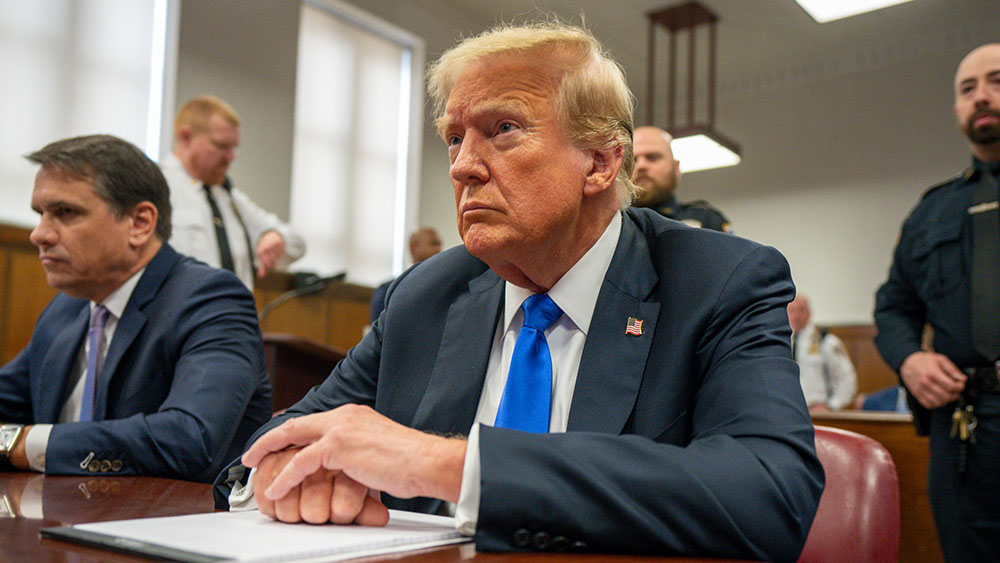 Parler
Parler Gab
Gab
- Following Donald Trump's reelection, the entertainment industry is experiencing a moment of profound self-reflection, realizing its political influence may be less significant than previously believed.
- Despite high-profile endorsements from celebrities like Taylor Swift and Beyoncé, Kamala Harris' presidential campaign fell short, highlighting the limitations of Hollywood's political clout.
- Hollywood is moving away from overtly political content and DEI initiatives, aiming for a more unifying approach that appeals to a broader audience.
- The industry is grappling with deep concerns about the impact of a Trump administration on marginalized communities and the industry's relationship with the media.
- Reflecting on past challenges, Hollywood is considering how to realign its content and commercial interests to remain relevant in a changing political landscape.
The fallacy of celebrity endorsements
Despite a chorus of endorsements from A-list celebrities like Taylor Swift, Beyoncé, George Clooney and Robert DeNiro, Kamala Harris failed to secure the presidency. A prominent Hollywood talent manager, speaking to Vulture, encapsulated the industry’s disillusionment: “Hollywood doesn’t matter as much as it thinks it matters.” The manager’s candid assessment reflects a broader sentiment within the industry. The so-called “Trump Resistance Playbook,” characterized by relentless political activism and woke narratives, appears to have backfired. The strategy, which dominated the cultural landscape during Trump’s first term, may have inadvertently alienated a significant portion of the American audience.A shift in strategy
The election results have prompted Hollywood to reassess its approach. Insiders predict a move away from overt political messaging and a return to entertainment that unites rather than divides. This shift is already evident in the departure of executives hired to promote diversity, equity and inclusion (DEI) initiatives, signaling a potential retreat from the social justice focus that defined much of the last decade’s content. Mark Ruffalo, an outspoken critic of Trump, captured the somber mood at the ACLU of Southern California’s Bill of Rights Awards: “Going through my mind was just all the marginalized people that are going to be suffering from the unimaginable cruelty that’s going to be unleashed. That was what was the most devastating. That we would let this happen.” Ruffalo’s comments reflect the deep anxiety that permeates the entertainment community. Unlike in 2016, when the initial shock of Trump’s victory galvanized Hollywood into action, the 2024 defeat has left many feeling resigned and fearful. Laura Friedman, a former film producer and newly elected Democratic congresswoman, echoed this sentiment: “We have seen his bizarre behavior, his corruption and cronyism – we’ve seen all of that, and yet people still voted for him. There’s a lot of fear.”Corporate and creative realignments
At the corporate level, the industry is also bracing for the new political landscape. Executives like Jeff Bezos and David Zaslav have already congratulated Trump on his victory, with the latter predicting that the new administration will be more favorable to media mergers. However, there are concerns about how Trump, known for his volatile relationship with the media, will respond to any perceived criticism. “Saturday Night Live” humorously addressed this anxiety during its cold open, with cast members jokingly declaring their support for Trump. Ego Nwodim quipped, “I keep waking up in the middle of the night screaming. With joy, of course.” Despite the jest, the industry’s commercial interests are likely to drive a more cautious approach. Joseph Gordon-Levitt, speaking at the Bill of Rights Awards, noted, “I don’t expect Hollywood to really do much other than pursue commercial interests, and I imagine those commercial interests will be realigned by this revelation.”Historical context and future implications
The current moment of introspection in Hollywood is not without precedent. The entertainment industry has historically aligned itself with progressive causes, often to its detriment. The backlash against Hollywood during the Red Scare of the 1950s and the subsequent blacklisting of artists serves as a cautionary tale. Similarly, the industry’s vocal opposition to the Vietnam War in the 1960s and 1970s led to a significant cultural backlash. Today, the industry faces a similar reckoning. The 2024 election has exposed the limits of celebrity influence and the potential pitfalls of aligning too closely with political agendas. As Hollywood navigates this new reality, the focus will likely shift towards creating content that resonates with a broader audience, rather than preaching to the choir. In the words of Liana Schwarz, an advisor to Hollywood donors, “There’s not a knee-jerk reaction. It is really about being introspective to figure this out.” The coming years will reveal whether Hollywood can successfully reengage with the American public and reclaim its cultural relevance. Hollywood’s moment of humiliation after Trump’s reelection serves as a powerful reminder that the entertainment industry’s influence, while significant, is not absolute. The future of Hollywood will be shaped by its ability to adapt to the changing political and cultural landscape, a challenge that will require both humility and strategic foresight. Sources include: DiscernReport.com Variety.com WashingtonExaminer.comTrump’s controversial Gaza proposal spurs global outrage
By Cassie B. // Share
China prepares to resume trade talks with Trump amid tariff pressures
By Cassie B. // Share
Trump’s 100-day plan to end the Ukraine war: A path to peace or a desperate gamble?
By Willow Tohi // Share
Purging the Deep State: Trump and Musk take axe to bloated bureaucracy
By Willow Tohi // Share
Trump’s tariff threats yield major border security concessions from Canada
By Willow Tohi // Share
White House’s funding freeze fiasco: A test of conservative principles or political propaganda?
By Willow Tohi // Share
Governments continue to obscure COVID-19 vaccine data amid rising concerns over excess deaths
By patricklewis // Share
Tech giant Microsoft backs EXTINCTION with its support of carbon capture programs
By ramontomeydw // Share
Germany to resume arms exports to Israel despite repeated ceasefire violations
By isabelle // Share










